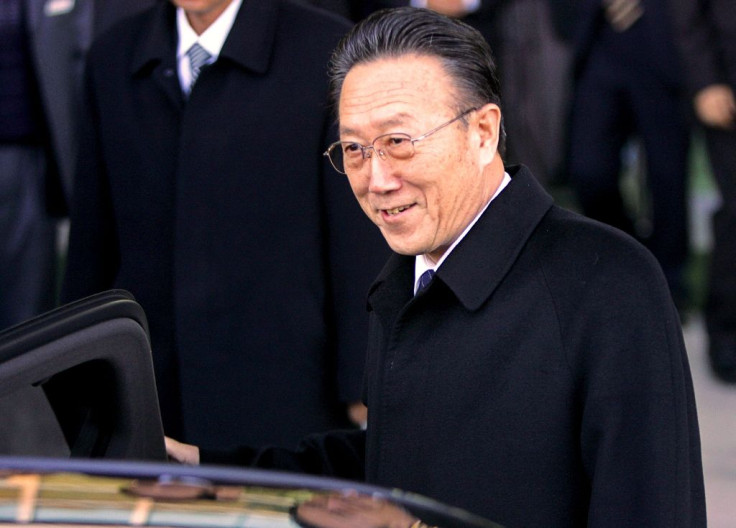North Korean Leader Kim Jong Un’s Top Aide Kim Yang Gon Dies In Car Crash

A senior North Korean official and leader Kim Jong Un’s top aide died in a car accident Tuesday, the state news agency reported Wednesday. Kim Yang Gon, who was a secretary of the Workers' Party, played a key role in high-level talks in August after the two Koreas exchanged artillery fire, increasing tension to peak in recent years.
Kim Yang Gon was the head of its United Front Department, the unit that administrates the relations between the two Koreas. He was also Kim’s "closest comrade-in-arms and steadfast revolutionary comrade," who had made efforts for unification with South Korea, Korean Central News Agency (KCNA) reported.
The news agency did not provide further details of the death of Kim Yang Gon, who was killed in the accident Tuesday morning. The 73-year-old’s funeral will be held in Pyongyang Thursday. South Korea reportedly expressed condolences in a message sent out Wednesday by the country’s Unification Minister Hong Yong-pyo.
Experts have warned Kim Yang Gon’s death could lead to decline in the two Korea’s relations.
“This is going to deliver negative impacts on inter-Korean relations. In light of the North’s nature, I don’t see anyone who can replace him in his role in daring to offer policy ideas and advice to the leader in these fields.,” Yang Moo-jin, a professor at the University of North Korean Studies, said, according to the Guardian.
Several top level officials have died in traffic accidents in the past in North Korea, where roads are poorly maintained. In 1976, an official believed to be then-president Kim Il Sung’s rival died in a car accident. In 2003, Kim Yang Gon’ predecessor was killed in a traffic accident and in 2010 top official Ri Je Gang also died in a car crash.
"North Korea has a long track record of suspicious deaths around high-level officials," North Korea expert Andrei Lankov told Reuters. "Most die either because they are machine-gunned, or they die in car crashes. There are almost no cars and security for high-officials traveling in cars is extremely tight. Given that, one is bound to be skeptical about any such report coming from North Korea."
© Copyright IBTimes 2024. All rights reserved.






















